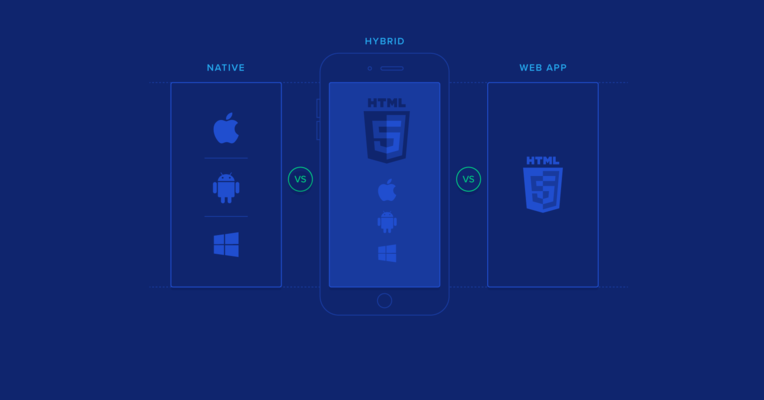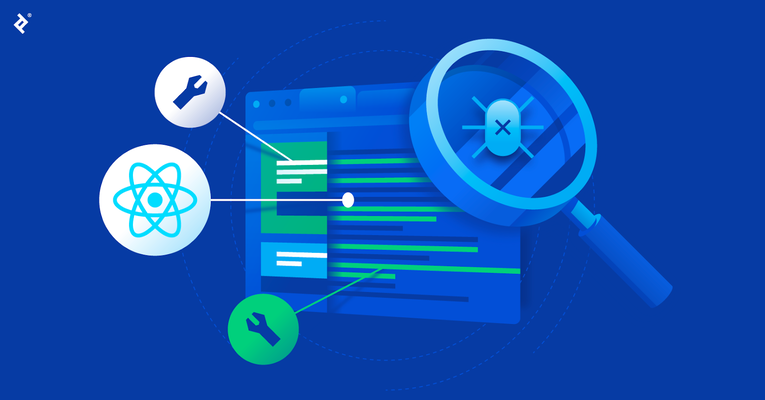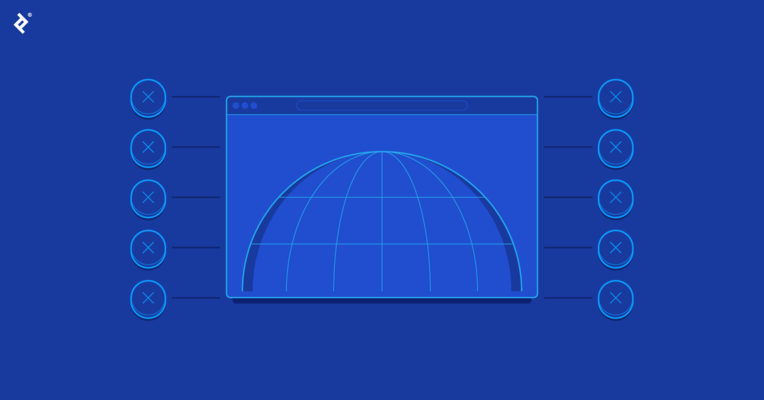Demand for Chrome Extension Developers Continues to Expand
The demand for Chrome Extension developers is skyrocketing as businesses increasingly rely on browser-based tools to enhance productivity and streamline workflows. Data from August 2024 shows the Chrome browser accounts for more than 65% of the global market share for all web browsers. As a result, Chrome Extension Development is rapidly becoming one of the most sought-after specialties in software engineering, and the trend shows no sign of slowing.
Google Chrome extensions drive efficiency, enabling custom functionalities across various domains, including project management, cybersecurity, and e-commerce. Even in traditionally rigid industries like legal services and education, extensions are transforming how professionals work, offering solutions tailored to niche needs. From automating repetitive tasks to integrating third-party services directly into the browser, the scope of Chrome Extension Development is expansive, involving technologies like JavaScript, HTML5, and Chrome’s APIs, as well as robust debugging and testing skills.
The depth and diversity of Chrome Extension Development tasks pose two critical challenges for businesses looking to onboard top talent: finding developers adept at front-end and back-end integration and recruiting professionals with a clear understanding of compliance and security standards required for Chrome Web Store approval. Moreover, identifying candidates with domain-specific insights can ensure that the extension delivers optimal user value.
This guide offers a thorough approach to hiring Chrome Extension developers, with actionable strategies for sourcing candidates, crafting precise job descriptions, and conducting effective interviews to assess technical and problem-solving capabilities.
What Attributes Distinguish Quality Chrome Extension Developers From Others?
Chrome Extension developers should possess a strong foundation in front-end and back-end development principles, as relying solely on one can result in incomplete or ineffective solutions. Candidates should demonstrate expertise in programming languages and environments such as JavaScript, Node.js, PHP, and CSS, alongside experience with the Chrome Extensions API and tools like webpack for building and optimizing extensions. They should also be able to translate user needs into functional, secure, and performant browser tools—an essential skill to prevent costly product failures and ensure a positive browsing experience.
Another critical factor is the candidate’s mastery of the Google Chrome extension development process. Since this involves everything from initial scoping to deployment on the Chrome Web Store, a developer should excel in the following areas:
Rapid Prototyping and Testing: The best Chrome Extension developers know how to prototype and test functionalities quickly. They should be proficient in debugging tools like Chrome DevTools and adept at conducting iterative testing cycles to refine the extension based on user feedback, supporting an Agile development process.
API Integration: Developers must seamlessly integrate third-party APIs into Chrome extensions to enable functionality like data synchronization, cloud storage, and user authentication. They should ensure APIs are used efficiently and securely, aligning with project requirements and industry standards.
Optimization and Performance: Chrome Extension developers should be skilled in optimizing code to ensure the extension runs smoothly without impacting browser performance. This includes managing memory, reducing load times, and following best practices for performance tuning.
Complementary Skills for Chrome Extension Developers
Beyond core development skills, projects often benefit from additional competencies that enhance a developer’s toolkit. Depending on the project’s scope, you may look for experience in the following areas:
Security Best Practices: Since browser extensions often handle sensitive data, familiarity with security protocols, such as Content Security Policies (CSP) and data encryption, is vital. A strong understanding of Chrome Web Store compliance guidelines ensures extensions are safe and meet approval criteria.
UX Design: Developers who understand UX principles can design functional, intuitive, and user-friendly extensions. Experience in creating wireframes or collaborating with designers to refine user interfaces can add significant value.
Version Control and Collaboration: Experience with version control systems like Git and collaborative platforms like GitHub is essential for developers working in team environments. This skill ensures smooth collaboration and efficient tracking of changes during the development lifecycle.
Automation and Scripting: For extensions that involve repetitive tasks or complex workflows, knowledge of automation libraries like Puppeteer or scripting tools can help deliver robust solutions tailored to user needs.
Testing Frameworks: Proficiency in testing frameworks like Jest or Mocha ensures that extensions are reliable and maintain high quality. Automated testing skills are particularly valuable for large-scale or complex projects.
Strategic Alignment with Business Goals: Advanced developers go beyond coding to align technical solutions with business objectives. Candidates with experience translating client or user needs into development strategies can ensure the extension delivers maximum value and impact.
How Can You Identify the Ideal Chrome Extension Developers for You?
Understanding your project and team’s browser extension development needs is essential when hiring a top Chrome Extension developer. Are you building a cutting-edge extension from the ground up or enhancing an existing browser tool? Do you need a full-time developer or a freelance specialist? Does your project involve complex integrations or niche functionalities requiring specialized expertise? Are there established workflows and methodologies (such as Agile or DevOps) that new team members must quickly adopt, or are you looking for someone to develop these from scratch?
These considerations help define the level of expertise required in a Chrome Extension developer for both your team’s and project’s needs:
Junior Developer: A junior Chrome Extension developer may have experience building simple extensions or contributing to specific tasks within a larger project. They are typically proficient in JavaScript, HTML, and CSS and may have some exposure to the Chrome Extensions API. Junior developers often benefit from close mentorship by senior team members to refine their coding skills and learn best practices for developing secure, performant extensions.
More experienced junior developers might take responsibility for tasks like integrating APIs for specific features or debugging minor issues within an extension.
Hiring a junior Chrome Extension developer is ideal if your team has established processes and experienced developers who can provide guidance. With coaching, a junior developer can contribute meaningfully by supporting development efforts and gaining hands-on experience. However, they may require support when working on complex integrations or performance optimization.
Mid-level Developer: A mid-level Chrome Extension developer is proficient in core web technologies and has hands-on experience developing and deploying Chrome extensions. They are well-versed in integrating APIs, managing data storage using Chrome’s storage APIs, and debugging issues using tools like Chrome DevTools.
Mid-level developers can contribute to architectural discussions, propose scalable solutions for extension functionalities, and mentor junior developers. They can also implement features like OAuth authentication or browser automation with minimal supervision.
Hiring a mid-level developer is ideal if your project is moderately complex or you’re expanding an existing team with a well-defined workflow. They should be able to work independently, adapt to new requirements, and take on responsibilities that enhance the team’s output.
Senior Developer: A senior Chrome Extension developer is an expert in creating robust, secure, and user-friendly browser tools. Backed by extensive experience, they have a deep understanding of the Chrome Extensions API, modern JavaScript frameworks, and advanced debugging and performance optimization techniques for both iOS and Android.
Senior developers are skilled in designing extensions that align with both short-term requirements and long-term goals. They have years of experience managing the entire development lifecycle, from ideation and architecture to deployment on the Chrome Web Store. Additionally, they are adept at ensuring compliance with Chrome Web Store policies and addressing security concerns like data encryption and Content Security Policies (CSP).
Senior developers excel in cross-functional collaboration, working with designers, product managers, and stakeholders to ensure the extension meets business goals and user needs. They can identify potential technical challenges early and provide strategic solutions, saving time and resources by avoiding costly redesigns.
You should hire a senior Chrome Extension developer if your project involves complex functionality, requires high-stakes decision-making, or needs a leader to guide less experienced team members.
Common Chrome Extension Development Specializations
Additionally, consider specific expertise relevant to your project:
API Integration – Developers skilled in integrating third-party APIs can enable functionalities like syncing data with external services or enabling cloud-based operations.
Performance Optimization – Look for developers experienced in improving extension load times and ensuring minimal impact on browser performance.
Security Compliance – Extensions handling sensitive data require developers with expertise in security practices, such as secure authentication, encryption, and compliance with Chrome Web Store policies.
UX-focused Development – For user-centric projects, developers with a firm grasp of UX design can help create intuitive and seamless interfaces.
Automation and Scripting – Developers proficient in automation tools like Puppeteer can build powerful extensions that streamline workflows and improve productivity.
Whether hiring a junior developer to support existing projects or a senior developer to lead a high-stakes initiative, aligning their skills with your needs will help ensure a successful hire.
How to Write a Chrome Extension Developer Job Description for Your Project
To attract highly skilled Chrome Extension developers, craft a job description clearly outlining the role’s responsibilities, required expertise, and project context. Start with an engaging job title that reflects the position’s seniority, focus, and work arrangement. For example, “Senior Chrome Extension developer—API Integration and Security (Remote)” conveys the expertise level, technical focus, and flexibility upfront.
Start with the Project’s Goals and Objectives
Clearly articulate what you aim to achieve with the custom Chrome extension. Are you building a new extension to streamline workflows, enhance productivity, or provide innovative browser-based solutions? Or are you upgrading an existing extension to improve performance, add features, or comply with updated security protocols? Providing this context helps candidates understand how their contributions will impact the project.
Include Project Details
Add specifics to help developers gauge the project’s scope and complexity. Is the extension for a broad or niche audience? Will it integrate with multiple APIs or require handling sensitive user data? Are there unique challenges like optimizing for high traffic or working within strict security requirements? Define the project’s scope in terms of technical requirements, the target audience, or the expected outcomes. Mention whether the extension will be a standalone tool or part of a larger ecosystem, such as integrating with existing SaaS platforms.
List Required Skills and Expertise
Outline the technical and soft skills essential for the role:
-
Technical Skills
- Proficiency in JavaScript, HTML5, and CSS.
- Experience with the Chrome Extensions API.
- Familiarity with API integration, debugging tools like Chrome DevTools, and optimization techniques.
- Knowledge of security practices, including Content Security Policies (CSP) and data encryption.
- Optional: Experience with automation tools like Puppeteer or frameworks like React.js.
-
Soft Skills
- Strong problem-solving abilities, attention to detail, and strong communication skills.
- Effective collaboration with cross-functional teams, including designers, the development team, and product managers.
- Strategic thinking to align extension development with business goals.
Emphasize the Role’s Impact
Highlight how the developer will contribute to the project and organization. Will they solve critical user pain points or improve productivity for thousands of users? Are they expected to lead development efforts, mentor junior developers, or contribute to strategic decisions? Will their work directly impact product success or user satisfaction? Answering these questions will give candidates valuable insight into the position and how well they fit with their skills and experience.
Tailor the Description to Attract Top Talent
A clear and compelling job description that outlines the project’s objectives, scope, and required skills will attract developers with the expertise and motivation to deliver impactful Chrome browser extensions. By presenting the role’s unique challenges and opportunities, you’ll engage candidates who are skilled and invested in the project’s success and your business needs.
What Are the Most Important Chrome Extension Developer Interview Questions?
Interviewing Chrome Extension developers, whether remotely or on-site, provides an opportunity to evaluate technical and essential soft skills.
As with any development role, the focus should be on understanding how the candidate approaches problem-solving, integrates user feedback, and adapts their methodologies to deliver functional, secure, and high-performing browser tools. While assessing familiarity with specific tools or frameworks is essential, the emphasis should be on their ability to apply technical expertise to solve complex development challenges.
At least half of your interview questions should center around general development principles, as a strong Chrome Extension developer needs a solid foundation in JavaScript, browser APIs, and performance optimization. However, some questions specific to Chrome extension development are equally important. Below are practical questions to guide the hiring process:
How do you approach designing a Chrome extension that balances performance and functionality?
This question assesses the candidate’s ability to optimize code for speed and efficiency while meeting user requirements. Look for examples of how they’ve reduced load times, managed memory, or ensured extensions run smoothly without negatively impacting browser performance.
Describe your process for integrating third-party APIs into a Chrome extension.
API integration is a core component of many extensions, and this question uncovers how candidates evaluate, implement, and troubleshoot API integrations. Strong responses will demonstrate an understanding of authentication, error handling, and maintaining data security while integrating APIs effectively.
How do you ensure compliance with Chrome Web Store policies and security best practices?
Extensions must adhere to strict guidelines and prioritize user security. This question helps identify candidates familiar with Content Security Policies (CSP), permissions management, and secure data handling. Experienced developers should provide examples of navigating Web Store approval processes or addressing security concerns in previous projects.
How do you handle conflicting feedback from stakeholders or users?
Chrome extensions often serve a diverse user base with varying needs, and stakeholders may have conflicting priorities. This question reveals how candidates manage feedback, prioritize features, and align technical solutions with project goals. Look for a structured approach to resolving conflicts and ensuring user satisfaction.
How do you stay up-to-date with Chrome Extension development tools and trends?
The Chrome Extension ecosystem evolves with updates to the Chrome API and browser security practices. Ask how candidates stay informed about new developments, such as changes to Manifest versions or emerging tools. Look for enthusiasm and a proactive approach to learning, such as following developer blogs, contributing to open-source projects, or engaging in developer communities.
What is your experience working in cross-functional teams?
Collaboration is critical in extension development, as developers often work with designers, product managers, and other stakeholders. Strong candidates should provide examples of communicating technical details effectively, translating user needs into development priorities, or facilitating collaboration to achieve project goals.
How do you handle technical challenges or bugs that arise post-deployment?
Browser updates or user feedback often reveal unexpected issues after an extension is live. This question helps gauge how candidates approach debugging, patching, and releasing updates efficiently. Look for responses emphasizing proactive monitoring, clear user communication, and robust testing practices.
Portfolio and Code Review
A practical way to assess a developer’s skills is through a portfolio or code review. If the candidate has examples of Chrome extensions they’ve developed, ask them to walk you through the project, discussing:
- The extension’s functionality and target users
- The challenges they faced and how they overcame them
- Their approach to security, performance optimization, and user feedback
This provides insight into how they structure projects, solve problems, and deliver results.
Evaluate Their Continuous Learning and Passion for Development
Ask about the blogs, forums, or communities a developer follows to gauge their passion for staying current with industry trends. Dedicated candidates may participate in developer communities like Stack Overflow or the Chrome Developer Community, contribute to open-source projects, or follow resources like the Google Developers Blog.
Look for developers who actively engage in discussions or projects outside work, showing a genuine commitment to innovation and growth in Chrome Extension Development.
These questions will help you evaluate a Chrome Extension developer’s technical expertise, problem-solving abilities, and enthusiasm for their craft, ensuring you find a candidate who can deliver impactful browser tools for your team.
Why Do Companies Hire Chrome Extension Developers?
Chrome Extension developers are crucial in creating browser-based tools that enhance productivity, streamline workflows, and deliver tailored user experiences across various industries, including finance, healthcare, e-commerce, and SaaS. These developers are especially vital in the technology sector, where browser extensions help organizations extend their digital ecosystems, meet user needs, and build long-term customer loyalty.
In companies that prioritize efficiency and innovation, Chrome Extension developers contribute to adopting best practices in software design and integration. Their expertise ensures extensions are functional, intuitive, secure, and aligned with business goals.
Experienced Chrome Extension developers bridge the gap between technical implementation and user-centric design. They guide teams in integrating complex functionalities, optimizing performance, and meeting compliance standards. Investing in skilled Chrome Extension developers is a strategic move for organizations aiming to deliver high-impact solutions that exceed user expectations and adapt to evolving needs.



























